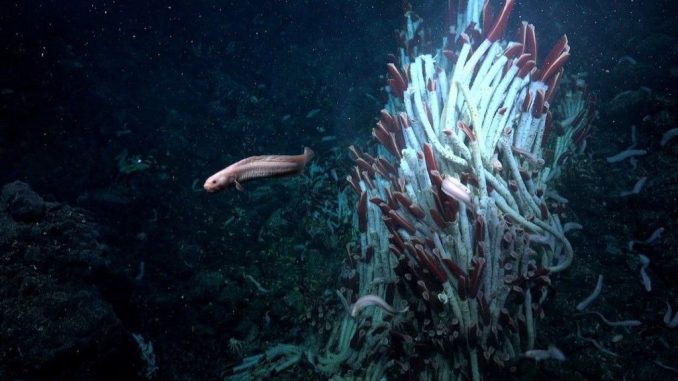
Deep-sea mining also poses a risk to newly discovered animals
Worms and snails appear to live on the ocean floor. The Royal Netherlands Institute for Sea Research (NIOZ) discovered a vibrant world with all kinds of animals that were unknown until recently. NIOZ researcher Sabine Gollner is therefore concerned about the Norwegian government’s plans for deep-sea mining.
Marine biologist Gollner conducts research into biodiversity in hot springs on the ocean floor. Using a robotic arm, she dug up volcanic rock from such a source, located two kilometers deep in the Pacific Ocean.
It turned out to contain all kinds of cavities and passages of worms and snails. “I couldn’t believe my eyes,” Gollner says. Previously it was thought that only microscopic life such as bacteria resides in the Earth’s crust, but not animals about fifty centimeters long. The discovery comes on top of long-standing concerns about life on the ground.
Cobalt, manganese and nickel
This deep-sea life is at risk of being damaged because the Norwegian government wants to investigate deep-sea mining. On the one hand, the ocean floor is a place where life has been able to develop undisturbed, sometimes for millions of years, and on the other hand, it is an enormous source of precious metals for the energy transition.
Cobalt, manganese and nickel can be found here. These metals are used, for example, for electric car batteries. European countries are currently dependent on countries such as China, Russia and Congo for these raw materials. Companies are interested in extracting these raw materials because there is a risk of a major shortage in the coming years.
A temporary ban on mining
Companies can submit a plan for the sustainable extraction of minerals south of Spitsbergen until next week. Rules regarding deep-sea construction have been discussed for about thirty years, but so far with little result. But Norway is the first country to take steps towards deep-sea mining south of Spitsbergen.
The Scandinavian country has already been called to order by the European Parliament for mining activities. Parliament is calling for a temporary ban on deep-sea mining until it is clear what the consequences are for the environment, ecosystems and biodiversity.
Gollner agrees. “I recommend that we first further investigate the importance of the underground habitat for biodiversity in the deep sea, before deep-sea mining could damage it irreparably.”

Be the first to comment